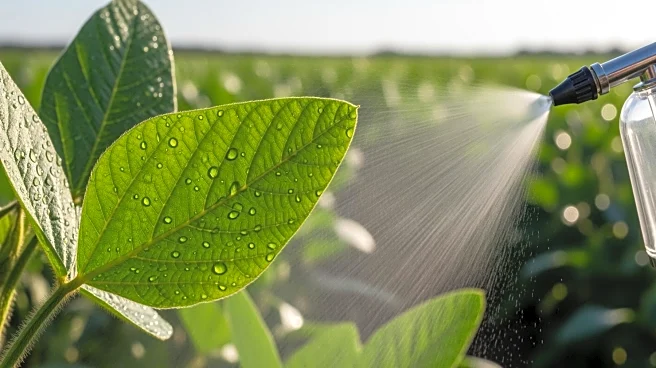What's Happening?
CIMMYT has successfully distributed its second generation of tropical haploid inducers to 50 organizations across 18 countries, significantly advancing maize breeding efforts. These haploid inducers, developed in partnership with the University of Hohenheim, have transformed the traditional maize breeding process by reducing the timeline from 30-40 months to just 10-12 months. The technology involves the creation of haploids, plants with a single set of chromosomes, which accelerates the development of elite inbred lines. Since their release in 2017, these improved lines have been adopted by both public and private breeding programs, enhancing haploid induction rates and agronomic performance.
Why It's Important?
The introduction of CIMMYT's tropical haploid inducers marks a significant advancement in agricultural biotechnology, particularly in maize breeding. By drastically reducing the time required to develop new maize varieties, this technology can lead to faster improvements in crop yields and resilience, which are critical for food security and agricultural sustainability. The widespread adoption of these inducers across multiple countries highlights their global impact and potential to enhance maize production in tropical regions. This development supports efforts to address challenges such as climate change and population growth by improving the efficiency and effectiveness of crop breeding programs.
What's Next?
As CIMMYT's tropical haploid inducers continue to gain traction, further research and development may focus on optimizing their use in different environmental conditions and expanding their application to other crops. Organizations utilizing these inducers may explore collaborations to share knowledge and best practices, potentially leading to new innovations in plant breeding. The success of this technology could encourage increased investment in agricultural biotechnology, driving further advancements in crop improvement and sustainability.









